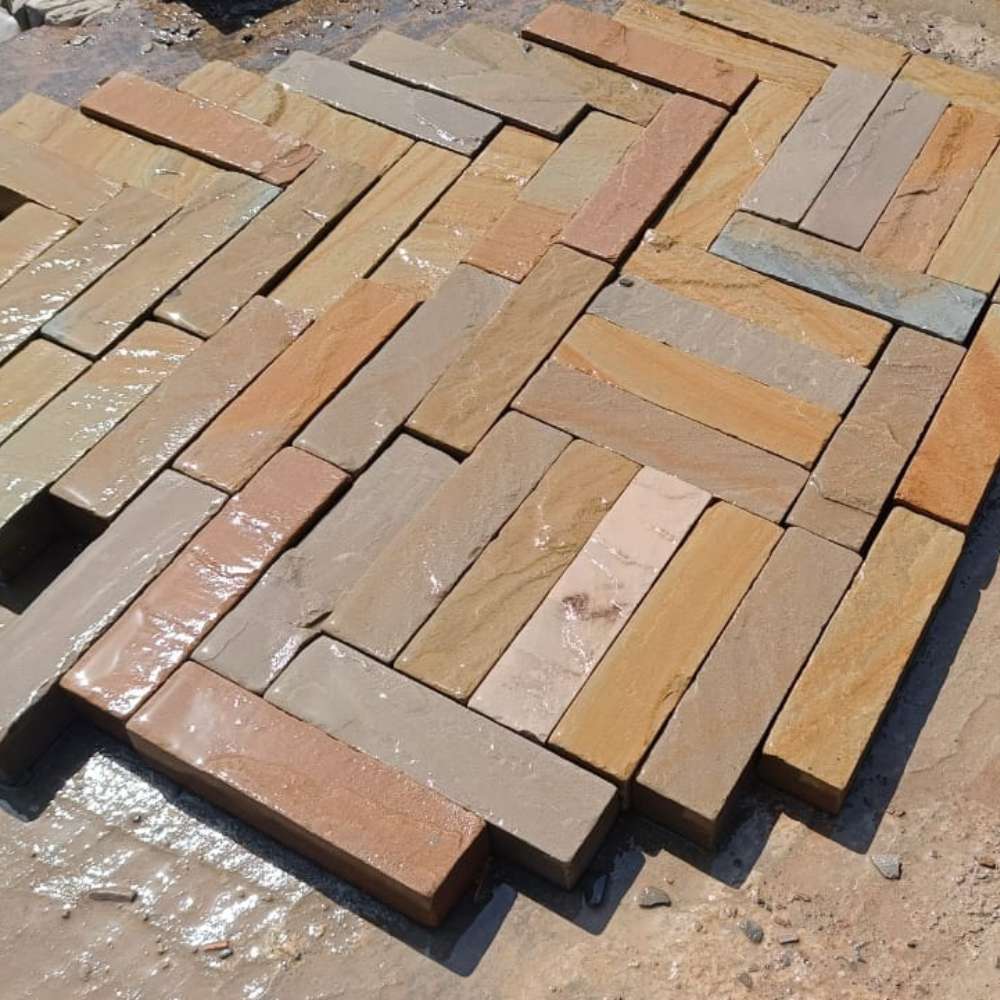Top Tips for Laying Porcelain Paving
05 September 2024
05 September 2024
03 September 2024

Porcelain paving is a smart investment for any outdoor space, offering unmatched durability, elegance, and low-maintenance beauty. Whether you’re enhancing a garden path or creating a stunning patio, understanding how to properly care for your porcelain paving is key to preserving its appearance and longevity.
This guide will walk you through everything you need to know—from routine cleaning to deep maintenance—so you can keep your outdoor area looking pristine with minimal effort.
Porcelain paving is crafted from fine clay and fired at intense temperatures, resulting in a dense, durable, and non-porous surface. Its resilience and minimal upkeep make it an excellent choice for elevating your garden or patio with a touch of elegance.
Thanks to its resistance to the elements, porcelain is a top pick for outdoor spaces. However, to maintain its long-lasting beauty, regular cleaning and sealing are essential. This simple routine will keep your outdoor area looking its best without much hassle.
Keeping your porcelain paving slabs looking fresh and clean is easier than you might think. Here are some straightforward tips to help you maintain their beauty and shine all year round.
Regular Maintenance
A quick sweep with a leaf blower or soft-bristled broom will keep your porcelain paving slabs clear of loose particles that could scratch the surface. Additionally, cleaning up spills—especially those containing acid or oil—immediately with a paper towel or clean, dry cloth will prevent discoloration.
Basic Cleaning
For routine cleaning, a mild detergent mixed with warm water is all you need. Avoid harsh chemicals, as they can damage porcelain. Applying the solution with a soft mop or towel will effortlessly maintain the clean, fresh appearance of your paving. After mopping, rinse the slabs with clean water to remove any soap residue, reducing the risk of stains and slippery areas. Dry the slabs with a clean towel or let them air dry to prevent watermarks and streaks.
Deep Cleaning
For a more thorough clean, follow these steps:

Stain Removal
Different stains require different treatments. For organic stains like wine or coffee, mix mild detergent with water, apply it to the stain, let it sit, gently scrub, and rinse. For oil-based stains, use a degreaser or a water-vinegar solution, apply, let it work, scrub, and rinse well. For rust stains, use a rust remover specifically designed for porcelain—just be sure to follow the product instructions carefully.
Choosing porcelain paving for your outdoor space is a smart move, but to keep it performing at its best, regular cleaning is crucial. Frequent cleaning prevents the buildup of dust and other particles that can tarnish the surface and reduce its visual appeal. Over time, accumulated dirt can lead to algae or moss growth, creating slick surfaces and potential safety hazards.
Regular cleaning also removes substances that, if left unchecked, could erode the surface or cause stains. For example, organic stains such as wine or coffee can penetrate the surface and become harder to remove if not cleaned promptly. Similarly, oil-based stains and rust can cause long-term damage if not treated quickly. A simple warm water and mild detergent solution is usually sufficient for basic maintenance, while specialty cleaners are recommended for tougher stains. By preventing the buildup of impurities, regular cleaning not only prolongs the life of your paving but also helps you avoid more significant problems down the line.
Sealing is a critical step in ensuring the long-lasting aesthetic appeal of porcelain paving. While porcelain is naturally moisture and stain-resistant, a high-quality sealer can provide additional protection against wear and tear from foot traffic and environmental factors.
Here’s why sealing matters:
Before applying the sealant, make sure the surface is thoroughly cleaned to ensure proper adhesion.
Porcelain paving is known for its durability, but even the toughest materials can suffer damage from severe weather or heavy traffic. The good news is that preserving its beauty requires minimal effort.
Restoring Damage
Preventing Damage
These techniques will help you maintain the structural integrity and aesthetic appeal of your porcelain paving for years to come.

At The Stonemart, our superior porcelain paving is renowned for its exceptional durability and aesthetic appeal. With a wide array of designs, colors, and finishes to choose from, our porcelain paving options can complement any design concept.
Each paving option is carefully crafted to withstand heavy foot traffic, harsh weather, and regular wear and tear. Plus, our porcelain paving is designed to be low maintenance, with a stain-resistant, smooth, and impermeable surface that’s perfect for both commercial and residential use.
Thanks for subscribing!
This email has been registered!